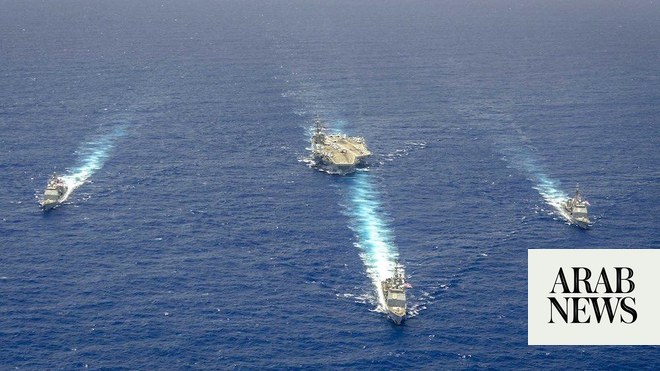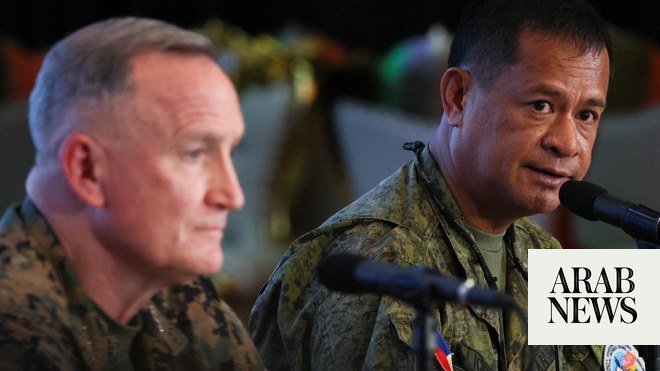
Funding boost comes after several maritime confrontations between China and Philippines
MANILA: The US announced on Tuesday $500 million in military funding to modernize the Philippine armed forces as the allies agreed to deepen defense cooperation amid continued tensions with Beijing in the disputed South China Sea.
The funding was announced after US Secretary of State Antony Blinken and Defense Secretary Lloyd Austin met in Manila with their Philippine counterparts, Foreign Secretary Enrique Manalo and Defense Secretary Gilberto Teodoro Jr.
“We’re now allocating an additional $500 million in foreign military financing to the Philippines to boost security collaboration with our oldest treaty ally in this region — new steps to strengthen the alliance, a once-in-a-generation investment to help modernize the Filipino Armed Forces and Coast Guard,” Blinken told reporters.
The US’ commitment to boosting its defense aid for the Philippines comes after a string of maritime confrontations between Chinese coast guard ships and Philippine vessels in the strategic waters that Beijing claims as its own.
“Both of us share concerns, and many other countries in the region share concerns as well, about some of the actions that People’s Republic of China has taken, escalatory actions in the South China Sea, the East China Sea, and elsewhere.”
Last month, the Chinese coast guard rammed and boarded Philippine naval vessels during their resupply mission on the Second Thomas Shoal, part of the contested waters that has become a central flash point between the two countries.
The US and the Philippines have a defense treaty and Washington has repeatedly warned that a Chinese attack on Filipino ships could trigger an American military response.
“This level of funding is unprecedented and it sends a clear message of support for the Philippines from the (Joe) Biden-(Kamala) Harris administration, the US Congress and the American people,” Austin said.
“During our meeting, we also reaffirmed that the mutual defense treaty remains the bedrock of our alliance. And let me be clear, the mutual defense treaty applies to armed attacks on either of our armed forces, aircraft or public vessels anywhere in the South China Sea.”
Manila and Beijing have overlapping claims in the resource-rich waterway, where the bulk of the world’s commerce and oil transits.
China has increased military activity in the area over the past few years, with the country’s Coast Guard regularly encroaching on the Philippine part of the waters. This is despite a 2016 ruling by an international tribunal in The Hague dismissing Beijing’s expansive claims.
On Tuesday, the Philippines and the US also agreed to strengthen cooperation in cybersecurity and other areas, seeking to make the Southeast Asian nation more resilient against external threats.
“Every peso or dollar spent on hardening the Philippines’ capabilities to defend itself and to deter unlawful aggression will be a plus against any threat actor, whether it be China or anyone,” Teodoro said. He added that the new funding will also boost the Philippines’ humanitarian assistance and disaster response capabilities.
“So these are not mono-dimensional but multidimensional investments that will help in the development of the country and help to deter unwanted and unlawful aggression by building a credible deterrent posture.”
Don McLain Gill, an international studies lecturer at De La Salle University in Manila, said the US defense aid was “of great importance” for both countries.
“The $500 million military funding is in fact important for the Philippines at a time when it seeks to operationalize its comprehensive archipelagic defense concept, which has been implemented by the military and to steer, you know, the Philippine … military modernization program towards a more robust capacity to defend Philippine waters,” he told Arab News.
“This is a welcome initiative and an important development within the US-Philippines alliance, and the role of the US as a capacity builder and security provider.”












